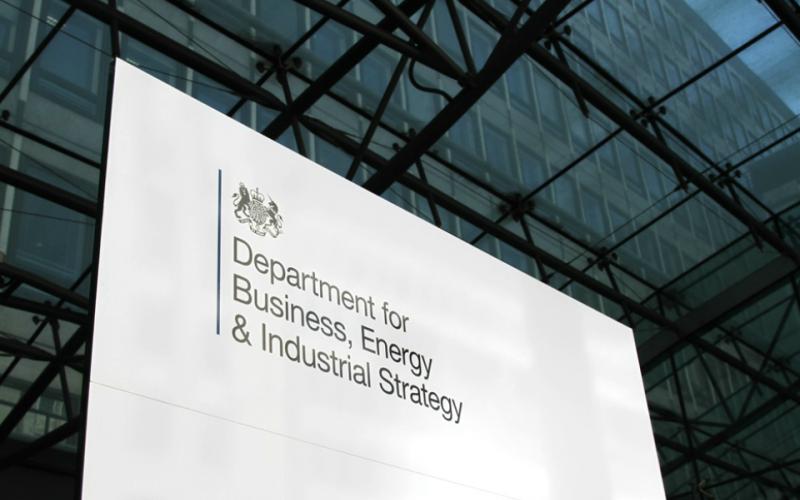
Image: BEIS
The policy gap between the feed-in tariff (FiT) and the Smart Export Guarantee (SEG) is set to close by the end of 2019, guaranteeing payment for excess domestic solar generation.
Details of the SEG have been much-awaited since the closure of the FiT at the end of March 2019, with concerns over a significant policy gap being raised by many in the industry.
Today, the department for Business, Energy and Industrial Strategy (BEIS) revealed that suppliers must implement the SEG before 1 January 2020.
The SEG requires any licensed supplier with over 150,000 domestic customers to provide at least one export tariff, a difference to the original proposal of suppliers with over 250,000 domestic customers. Smaller suppliers can take part on a voluntary basis but will be held to the same operational requirements as larger suppliers.
The design of the tariff is being left up to the individual supplier, which BEIS says is to allow for innovation and quick implementation. However, it is expected that over time tariffs will become increasingly smart.
Already suppliers E.On and Octopus have provided export tariffs, although E.On’s offering is limited to the first 500 customers and lasts only for a year. Octopus is offering two tariffs; a flat rate offering 5.5p per kWh of exported electricity and a variable rate dubbed Agile Octopus.
Under the SEG, generators up to 5MW will be guaranteed payment from suppliers. However, there is no required minimum floor price, simply the requisite that tariffs must be above zero. This is despite campaigning from the Solar Trade Association, among others, including both Labour and Conservative MPs, for a minimum floor price.
The specifics of the Smart Export Guarantee
When the SEG was first announced, it was uncertain whether or not storage would be eligible. BEIS has now confirmed that storage will be able to take part, provided it is co-located with an SEG-qualified small-scale renewable generator.
To guarantee safety, suppliers will be required to source evidence that all installs are certified through the Microgeneration Certification Scheme or a suitable equivalent. However, there are no plans for a central registration of installations.
All exports will have to be metered, with a meter capable of reporting exports on a half-hourly basis, meaning only households fitted with a smart meter will be eligible for the SEG. Meters must also be registered for settlement under the Balancing and Settlement Code.
An annual report on the Smart Export Guarantee will be provided by Ofgem, which will include the range, nature and uptake of tariffs. The government will use the report to monitor whether the market is delivering an effective range of options for small exporters.
It is also expected that Ofgem will offer guidance to suppliers in the run-up to implementation.
Chris Skidmore, stand-in energy minister, said: “We want the energy market to innovate and it’s encouraging to see some suppliers already offering competitive export tariffs to reduce bills.
“We want more to follow suit, encouraging small-scale generation without adding to consumer bills, as we move towards a subsidy-free energy system and a net zero emissions economy.”
However, Léonie Greene, director of advocacy and new markets at the Solar Trade Association, said the STA will be watching the market “like a hawk” to see if the offers coming forward properly value the power that smart solar homes can contribute to the decarbonisation of the grid.
Greene continued to say that it is vital that small generators are treated fairly in “a very big system” as the transition towards net zero cannot happen without active engagement of the public, with the STA ranking all tariffs via its online SEG league table.
“It is a requirement under EU law to offer fair, market-rate payment for small-scale solar power exports and government has decided to leave this to a market that it does not trust to supply power at a fair price,” Greene added.
Legislation enacting the SEG will be laid in Parliament today. It will be implemented through the Smart Export Guarantee Order 2019, along with modifications to the Conditions of the Electricity Supply Licence.
